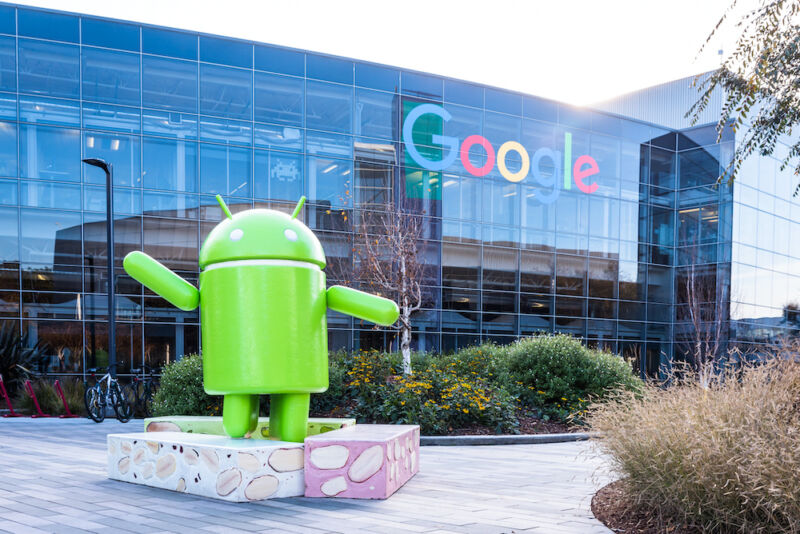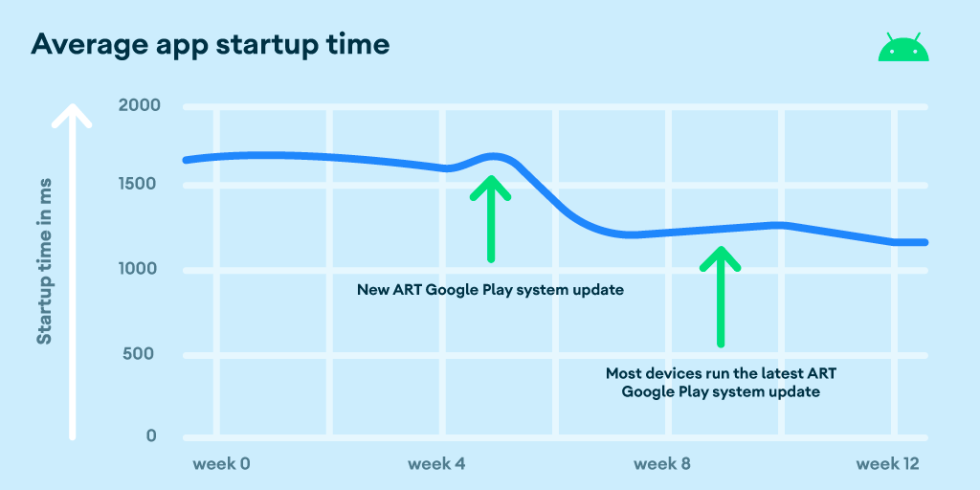
Enlarge (credit: Getty Images)
Google's latest blog post is all about extolling the virtues of ART, the Android runtime, and its new ability to be updated independently of the OS. ART is the engine that powers Android and is responsible for compiling Java and Kotlin into bytecode and executing it. Updates to ART have let Google improve the speed of apps, even without a full OS update. With the rollout of the Android 13 version of ART, Google said it has seen "real-world app start-up improvements of up to 30% on some devices."
ART officially became a modular part of the OS (an APEX module) in Android 12, allowing it to be updated via the Play Store instead of a system update. With the current Android distribution numbers, that means about 31 percent of users (or 600 million users) regularly get a better, faster app engine. While many components have been slowly moved into an APEX module, Google said ART is the biggest one, with "an order of magnitude more APIs than any other APEX module." Google has started versioning ART like it's a major software project, and with Android 14 will come "ART 14." The newest version of the runtime won't be limited to Android 14, though—it and most of its improvements will roll out to older OSes, too, so it's possible to run ART 14 on your neglected Android 12 phone.

ART 13 brought big app startup time improvements. (credit: Google)
As for ART 13, Google provided the above chart to show when the new update rolled out and the effect it has had on average app startup time. Google detailed some of the ART 13 changes with the release of Android 13, saying that "ART [13] makes switching to and from native code much faster, with JNI calls now up to 2.5x faster." ART "also performs more byte-code verification at install time, avoiding the expense of verification at runtime and keeping app startup times fast," Google said. The result is a 30 percent startup time boost for some devices.
Read 1 remaining paragraphs | Comments
https://ift.tt/971HW2B
Comments
Post a Comment